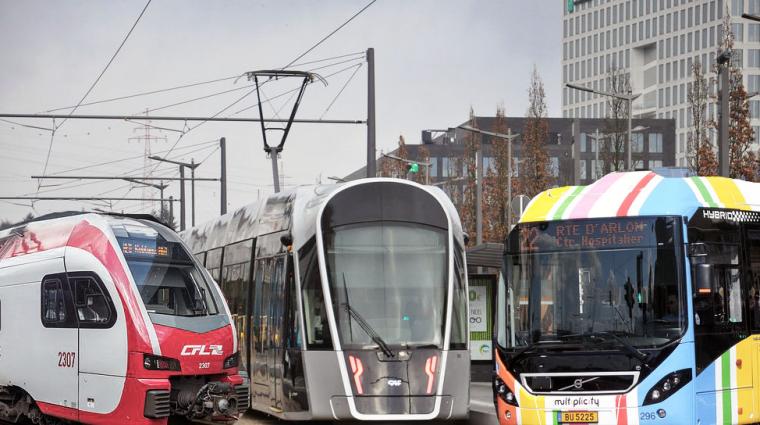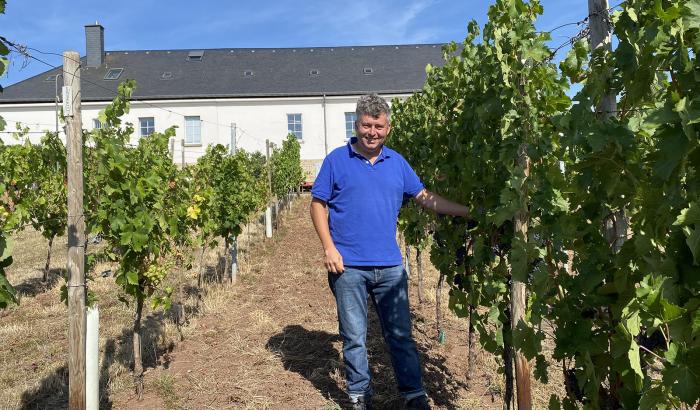Attractive public transport is seen as the most important means of reducing car dependency in Luxembourg's urban centres and thus preventing gridlock. A team of Belgian and Luxembourg scientists conducted an online survey to find out what passengers in the Grand Duchy value most. The study was published in September 2023 in the Journal of Public Transportation. Co-author Veronique Van Acker, Research Scientist at the Luxembourg Institute of Socio-Economic Research (LISER) and responsible for the research cluster "Living with urban dynamics" in the Urban Development and Mobility department, presents the results to us.
Mehr zu Veronique Van Acker: https://liser.elsevierpure.com/en/persons/veronique-van-acker
According to your study, what do users of buses and trains in Luxembourg value most?
We conducted the survey at the beginning of 2020 before the start of free public transport in order to collect comparative data. Even then, residents and cross-border commuters were most satisfied with the price. This surprised our foreign research colleagues, but not us in Luxembourg: groups such as students and pensioners were already travelling for free and the ticket was very cheap compared to other countries.
The cleanliness and comfort of the buses and trains and the politeness of the train attendants were also rated very favourably. We were surprised that this played such an important role. Safety on the train was also highly ranked, even more by cross-border commuters than by Luxembourg residents. When travelling by bus, residents were also particularly satisfied with the distance from their home to the nearest bus stop. Other criteria were frequency, waiting time, journey time, punctuality - everything relating to the train service itself. This is also where the respondents saw the greatest potential for improvement.
So those who are satisfied with the local transport services leave their car at home - or what are the reasons for using buses and trains regularly?
The main reason for very frequent public transport is not to have a car. The second most important reason seems to be environmental awareness, and a third reason is because they consider public transport easy to use and less stressful. Cross-border commuters were quite different: most of them said that parking their car was too expensive. They could also make good use of the time on the train, for working or reading. Knowing these motives is valuable for politicians.
And what annoyed passengers the most?
Delays, cancelled trains, long waiting times and inadequate frequency are the most dissatisfying factors. Residents of the country also criticised the lack of travel information. Cross-border travellers complained more about the overcrowded carriages at peak times on certain routes. "We feel like sardines in a tin," wrote some. If the number of users increases as a result of the now free public transport, but the frequency and number of trains remain the same, this could lead to overcrowding and frustration, but this is just a hypothesis.
Public transport in Luxembourg has been free for almost four years now. Have the number of users increased since then?
The number of passengers has strongly decreased in 2020 due to the COVID-19 pandemic and is now almost back to the same level as before the pandemic. The number of passengers has also systematically increased since the opening of the tramline and continues to increase due to its continuous expansion. But this is not necessarily due to free public transport. At the same time, the bus network in this areas around the tramline have been revised and some bus lines were stopped. So, users of these bus lines probably shifted from bus to tram.
We recently launched a new online survey to find out whether more people are using buses and trains since they became free, and whether public transport is really replacing private cars or is used more as a supplement. If you would like to take part, you can find the questionnaire here.
And what are the hurdles for those who still do not use public transport?
This is also the subject of the new survey, in which we deliberately also address non-users. The main reasons are probably their own car and its flexibility - especially if they have to coordinate many different activities such as work, taking children to school, shopping and sport. If you want to change people's driving behaviour and motivate them to use public transport, you first need to understand these activity patterns. Then the question arises of how to combine transport policy and regional planning.
Large parts of Luxembourg are rural, where people are particularly dependent on cars. Will it ever be possible to convince more people in these regions to use public transport?
Traditional public transport with fixed lines, frequencies and times works best in urban areas, as demand is too low in rural areas, where buses often only run once an hour. More flexible "on-demand" solutions that link different modes of transport are needed here. However, we still don't see much of these integrated modes in Luxembourg.
Are there any good examples from other countries?
In many Dutch cities, for example, the combination of transport modes such as taking the bike on the train and hiring a bike at any station is actively promoted. This combines different modes of transport and helps users to cover the "last mile" from the station to their final destination more quickly. There are initial initiatives in Luxembourg, but there is certainly still potential. The concept behind it is "mobility as a service". While cities continue to invest in traditional, well-functioning public transport with fixed intervals, in rural areas, where a frequent service would be expensive and inefficient, alternatives are offered on demand and various means of transport are combined. In France, for example, scenarios such as the use of autonomous cars and shuttle buses on demand outside cities was discussed. These shuttles would then take people to transport hubs which transfer them to traditional lines into the city.
What does the study advise transport companies and politicians - which strategies are most likely to be successful?
In order for people to become loyal, regular users of buses and trains, satisfaction with the transport itself, safety on board and the walking time from arrival to destination play an important role. The frequency and punctuality of transport services must be sufficient and reliable, and it is worth paying attention to cleanliness and service. On the other hand, it is unlikely that the abolition of fares will have a major impact on loyalty. New, flexible solutions such as on-demand buses are also needed, especially in rural areas. However, transport research also shows that good public transport alone does not automatically reduce road traffic. At the same time, the use of private cars must be actively restricted, for example through a congestion charge. In Luxembourg, a lot is being invested in alternatives to the car, but restrictions on car use are not yet a topic here.
The reactions would probably be strong. How do you get citizens on board with this approach?
It really does take a lot of time. I myself come from Ghent in Belgium. Decades ago, the city first introduced pedestrian zones, then 30 km zones, then continued to reduce car use in the entire zone within the inner ring road, all with a specific vision: less traffic means less air pollution. The debate about sustainable mobility is often linked to the personal health of citizens. This can help to win people's support for changes.
>> Assessing public transport loyalty in a car-dominated society: The case of Luxembourg : https://www.sciencedirect.com/science/article/pii/S1077291X2300022X?via%3Dihub
Author: Britta Schlüter
Editor: Jean-Paul Bertemes (FNR)




